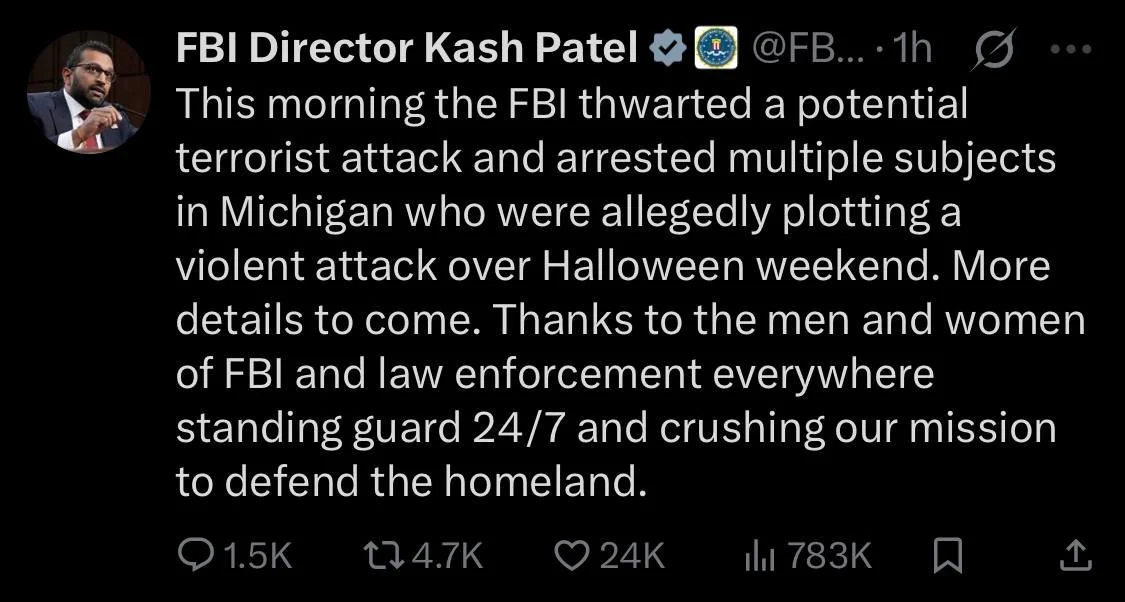Michigan Halloween Plot: FBI Raids in Dearborn and Inkster
Executive Summary
The FBI arrested multiple young suspects in Michigan on October 31, 2025, after monitoring online chats that referenced a Halloween time frame, which some messages called “pumpkin day.” Raids were conducted at homes in Dearborn and a storage site in Inkster. Authorities said there was no ongoing threat to the public. Press accounts cite possible Islamic State inspiration and the use of an undercover in the chatroom. A defense attorney representing one detainee disputes that any terror attack was planned and suggests the chatter was gaming related. Senior federal officials reportedly voiced concern that FBI Director Kash Patel announced the case before key details and charging documents were in place.
Analysis
Public statements and local reporting indicate the FBI moved when online discussions shifted toward a near-term timeline, a classic trigger for disruption when intent appears to be converging with capability. Early leaks point to an ISIS-inspired motive and a firearms component, but questions remain about whether the group had the means to execute a mass-casualty attack. The lack of immediate charges and defense claims that the chats were gaming talk underscore the preliminary state of the case and the risk of overstatement before affidavits are filed.
Director Patel said the Bureau “thwarted a potential terrorist attack,” with multiple arrests in metro Detroit tied to a plan over Halloween weekend, and that more details would follow.
Agents executed searches at Dearborn residences and an Inkster storage facility, with FBI evidence teams and Michigan State Police on scene; local police and the FBI stated there was no current threat to public safety.
A defense attorney representing one detainee says no terror event existed and attributes the chatter to online gaming talk, adding that his client is a young U.S. citizen and that he does not expect charges; other reporting says senior FBI and DOJ officials were frustrated that the Director announced the operation before a complaint was ready.
Based on the current open reporting, this appears to be a preventive disruption of a suspected, early-stage conspiracy with ideological cues, rather than a fully staged plot. The focus on Halloween suggests symbolic timing and the potential for opportunistic targeting, aligning with patterns where online rhetoric and compressed timelines drive early intervention. Key indicators to watch include whether federal complaints cite concrete steps to acquire weapons, casing of targets, or material support activity, as well as whether any statements or digital media explicitly pledge to ISIS. Community messaging from Dearborn and state officials emphasizing no ongoing threat likely helped stabilize local concerns during holiday events.


